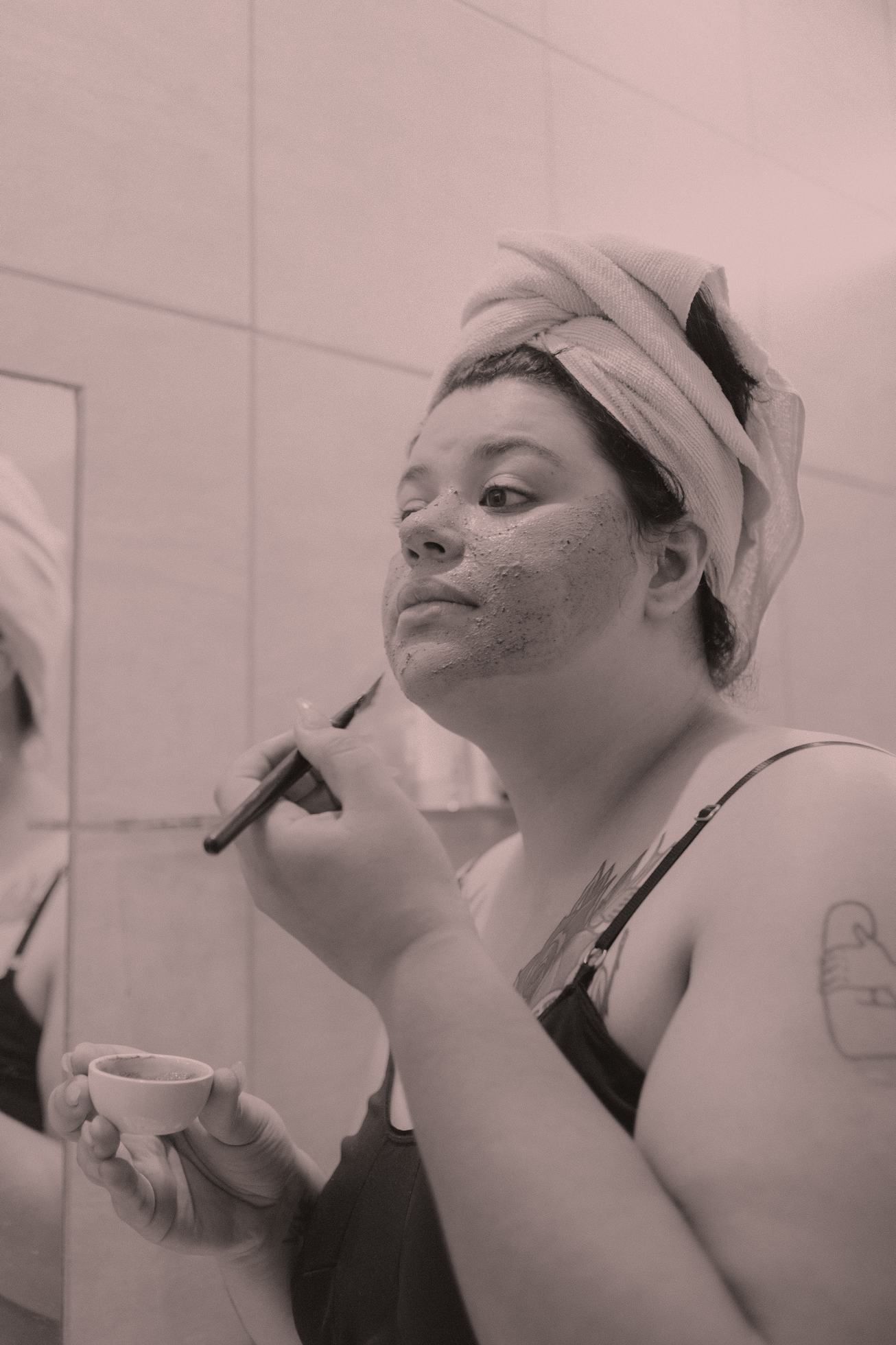
Beauty
Anti-Stress Skincare Products Are On The Rise, But Do They Really Work?
Skincare experts weigh in.
There are extensive consequences associated with feeling stressed out. Beyond the negative physical and emotional impacts that stress can have on your body, it can also create some serious havoc for your skin. Medical experts have long suggested that feelings of continued and intense stress can result in premature signs of skin aging, inflammation, and an increase in acne. There are ways of managing stress, all of which incredibly personal — but when it comes to implementing a method that can easily be done from the comfort of your home, many beauty brands are now touting the benefits of anti-stress skincare products.
But before you load up your face with every stress reducing cream and spray imaginable, there is some important information regarding the product category to consider — most importantly noting that there is more to reducing the impacts of stress on the skin than just adding a daily moisturizer into your routine.
Dermatologist Dr. Heather D. Rogers — founder and CEO of Doctor Rogers RESTORE and co-founder of Modern Dermatology in Seattle — told NYLON that stress can impact our entire body. "Carrying around all this stress affects our body in so many ways," she said. "It causes fatigue, insomnia, hair loss, acne, increased picking, slowed healing, dry, dull skin, and much more." In a year that's included so much uncertainty, stress has been particularly high, and there is an element of relaxation associated with using these products.
What is anti-stress skincare?
According to Dr. Rogers, anti-stress skincare doesn't directly stop or prevent stress, rather it's intended to encourage self-care. "Anti-stress skin care will not fix stress but the idea behind it is great. They are products designed to make you pause and take care of yourself, to focus on something calming and soothing and in doing so better control your stress," she said.
Joshua Zeichner, the director of cosmetic and clinical research at Mount Sinai Hospital further explained that anti-stress skincare products are typically created to hydrate and repair the skin barrier, as well as reduce inflammation. However, he did note that many skincare products are multipurpose. "While they can be effective in addressing stress related skin issues, there are many products not specifically labeled as treating stressed skin that can be effective as well," he said.
Even when you don't realize it, stress is likely already the culprit behind some of your most common skincare woes, Kat Bryce, global brand VP at Loum said. "We protect ourselves from so many of the daily assaults on our skin, yet until now there's been no comprehensive solution to protect against stress, despite stress damaging our skin at every level and levels of stress and burnout being the highest they've ever been," she said. That's where anti-stress skincare comes in.
Do anti-stress skincare products actually work?
Many anti-stress skincare products were created to undo skin damage caused by stress. Products — unless aromatherapy-based— likely won't prevent you from feeling or having stress, but as Bryce told NYLON, Loum uses its line to reverse and dial down common skin issues — including redness, acne, excess oil, and dryness — caused by stress.
While some may experience benefits from utilizing anti-stress skincare, Dr. Rogers warned that not all products are created equal, and what helps one person, may cause irritation for another. Instead of looking for products specifically targeted for stressed out skin, Dr. Rogers suggested finding skincare products that can calm sensitive skin and strengthen the skin barrier. "Much like you need TLC to deal with stress, your skin needs TLC as well," she said.
What are other ways to manage the impact of stress on skin?
If you believe that your skin is being impacted by stress, there are signs to look out for, Zeichner said. "The skin can become stressed not only because of internal, psychological issues, but also from harsh environmental factors. In some cases, the skin can be exposed to allergens or even pollutants and cause inflammation and stress the skin. If the skin is red, itchy, inflamed, tight, or peeling, or if you are developing breakouts suddenly, then it may be a sign that the skin is stressed," he said.
Zeichner said that if your skin appears to be stressed, and products are not alleviating the issue, it's best to stop the use of your regular routine, and instead, use a bland, fragrance-free moisturizer "Stick to gentle, hydrating cleansers," he said. "You can try an OTC cortisone cream for a few days to calm the inflammation. If the skin is not calming down by itself after a few days, touch base with your Dermatologist for professional help."
Outside of attempting to alleviate stress-related skin impacts with products, it's also worthwhile finding other means of alleviating your stress. Dr. Rogers said to begin with your sleep habits, noting that when you get enough rest, you're able to more effectively tackle the rest of your day. As an added bonus, sleep has been proven beneficial to skin repair. "Once you are getting more sleep, then try to exercise, meditate, eat healthily, and improve your skin care regimen if that feels good to you and does not increase your stress levels by making you feel like you have more to do," she said.
Get familiar with some anti-stress skincare product options, below.
We only include products that have been independently selected by Nylon’s editorial team. However, we may receive a portion of sales if you purchase a product through a link in this article.
This article was originally published on